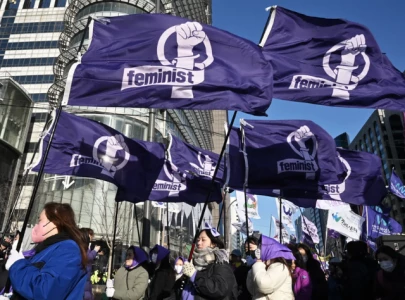
Of Nato’s many concerns, three stand out at Chicago: its future role and capabilities, Afghanistan, and relations with Russia. America’s expectations were set out in a testimony to the House Committee on Foreign Affairs on April 24. The centrepiece will be the announcement of the next phase of transition in Afghanistan; second, how to ensure critical defence capability, greater burden-sharing and what Nato’s secretary General, Anders Fogh Rasmussen, calls “smart defence”; and third, develop Nato’s role as “a global hub for security partnerships”.
At Chicago, we may have the first glimpse into the thinking of France’s new socialist leader, Francois Hollande. The much-hyped military success in Libya that France and the UK led from the front and the US from behind took no less than seven months at the end of which Muammar Qaddafi was dead and gone but the country became more disjointed and unstable than ever before.
Chicago would endorse the Deterrence and Defence Posture Review with its “appropriate mix of conventional, and missile defence capabilities” in the midst of economic austerity in Europe. Incidentally, Greece, which has been one of the three states with the largest percentage of GDP committed to Nato, faces the worst economic crisis that may culminate in its departure from the Eurozone. On the eve of the Chicago summit, The Economist, a journal that would refuse to visualise a world without Nato, reached a conclusion much less optimistic than what the US hopes to achieve: a future of reduced means and more modest ambitions; it listed America’s “strategic pivot towards the Western Pacific” amongst the causes of European anxieties and feared that doing less may rapidly become a catastrophic “doing nothing”. The Chicago summit will be judged by how it mediated between the maximal American expectations and the constrained European capabilities, particularly as France once again comes into its own with a more realistic semantics of power.
On Afghanistan, Washington hopes for three ‘deliverables’: an agreement on an interim milestone in 2013, for the shift of combat to the Afghan National Security Forces (ANSF), sustaining the huge ANSF and a ‘roadmap for Nato’s post-2014 role’ in Afghanistan. Contrary to the pre-summit rhetoric, Afghanistan’s ground realities are worse than at the time of the Lisbon summit. France may stand firm on disengaging itself two years ahead of the Americans, increasing public pressure on other Nato governments to get out of Afghanistan. Washington’s chronic inability to actually readjust policy between the reigning military policy and a nascent diplomatic quest for an inclusive political settlement prolongs the conflict, raises the spectre of a post-2014 civil war, creates problems for an already insecure President Hamid Karzai and vitiates relations with Pakistan.
Pakistan’s best hope at Chicago is for conversations with Barack President Obama and President Karzai on the sidelines of the summit serving as a reality check that leads to the main warrior nations of Nato moderating their ‘endgame’ strategy and thus avoiding a conflict without end between a foreign-funded (at least for now) and Nato-driven Afghan army and assorted insurgents. Given the realities — economic stringency and renewed calls for social justice in the West, diffusion of power across the globe, Russia’s resolve to respond strongly to Nato’s provocations such as in Georgia and occasionally Ukraine, and Moscow’s pursuit of its own projects such as a ‘union’ of Belarus, Russia and Kazakhstan and the very limited success of military interventions in Iraq and Afghanistan, Nato may eventually embrace more realistic objectives and focus substantially on its own trans-Atlantic treaty area in the days to come.
Published in The Express Tribune, May 21st, 2012.
COMMENTS (6)
Comments are moderated and generally will be posted if they are on-topic and not abusive.
For more information, please see our Comments FAQ







1729685382-0/Untitled-design-(57)1729685382-0-270x192.webp)




Pakistani columnists are good at predicting doomsday scenarios for Afghanistan after NATO withdraws but they lack prescience about Pakistan and what they will do to promote or prevent these scenarios.
Completely wrong topic of focus.
What writer should have focussed on is - What Pakistan can offer (Land transit route, end of sancturies to Haqqanis & Quetta Shura, future guarantees of non-interference in Afghanistan) on the high table, and what it can get (money to save itself from economic disaster just 8-9 months away, investment in Electricity and market access for its goods) at this Summit.
If anyone has noticed, Mr Obama has declined to even meet Mr Zardari at this summit, forget high horse of "Pakistan moderating endgame and serving as reality check for warring nations"...
If anone needs a reality check, it is Pakistan. It tried to chew too big a piece when it closed transit route for NATO and now it does not know how to spit it out or swallow! May be author should have contributed something on that !
People are giving the French thing a bit too much credit. They were usually on the negative end of war jokes even before that. They have a reputation for running away. It will influence some minor things but I'll bet you anything that there is not a single NATO member that was truly surprised. In any fairly recent (one or two hundred years) historical conflict involving France, that is their most consistent strategy seen. They can do whatever they want. But actions are what contribute to a world image. If you don't want to be seen as cowardly, you probably shouldn't act like one. I'm not saying they are obligated to care, either. But the topic is peoples reactions to France. Not France's reasoning and interests.
Those you call "assorted insurgents" are in fact veritable army of the ISI.
A flawed double dealing foreign policy based on terrorists being used as ” Strategic Assets” against the neighbors and lying to the international community, deserves condemnation and disgust by all. That is why Pakistan is being humiliated and isolated by the world. There is no room for niceties and diplomacy for such a nation. Obama will not meet Zardari alone unless Pakistan agrees to remove blockage of NATO supplies unconditionally. Pakistan is NOT going to get free money more than what it collected in 2010.
How is Pakistan going to survive the harvest it is about to reap from 2014 onward after its betrayal and duplicity?
Yes, there are severe constraints- but ultimately the future is in the Pacific and the US has realised this. It will devote more time and effort in 'containing' China. As for Af-Pak, Nato will take a more 'intelligent' road - pressure Pakistan by threatening to stop Aid (also keeping in in US's pockets by enriching amenable leaders secretely - civilian and military), ensuring Pakistan doesnot try adventures in Afghanistan. Secondly continue funding Afghanistan army.